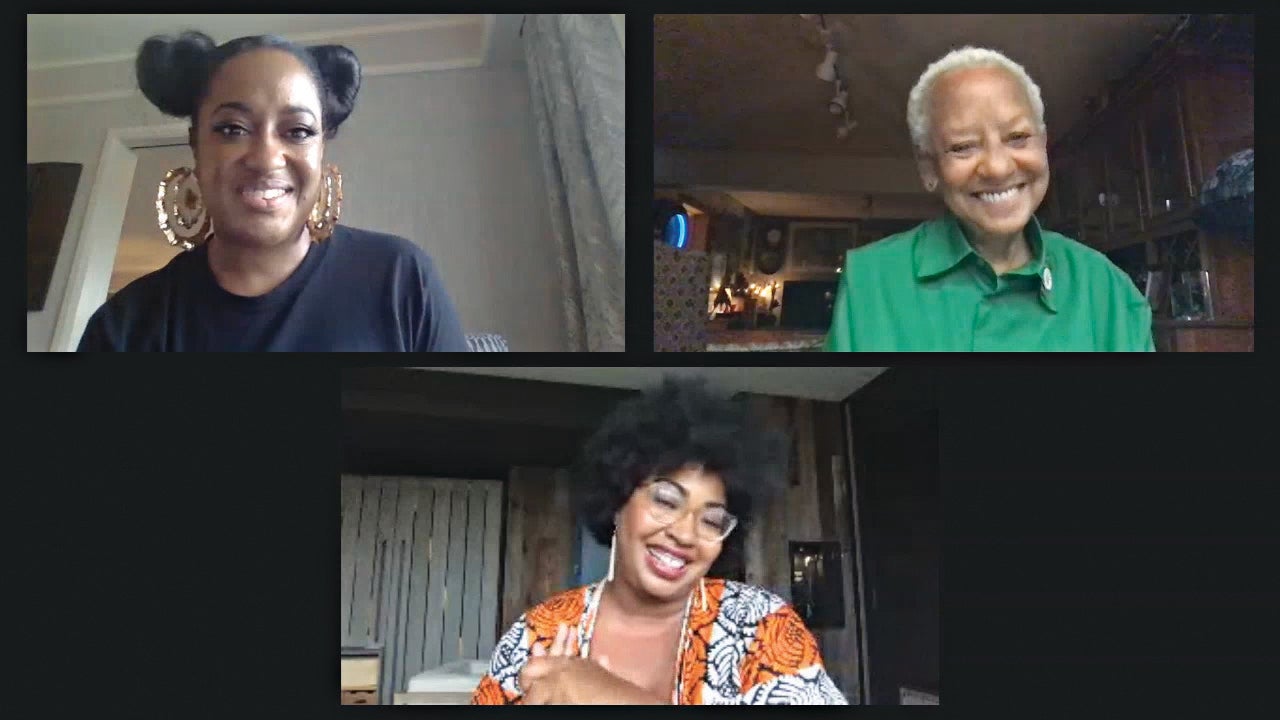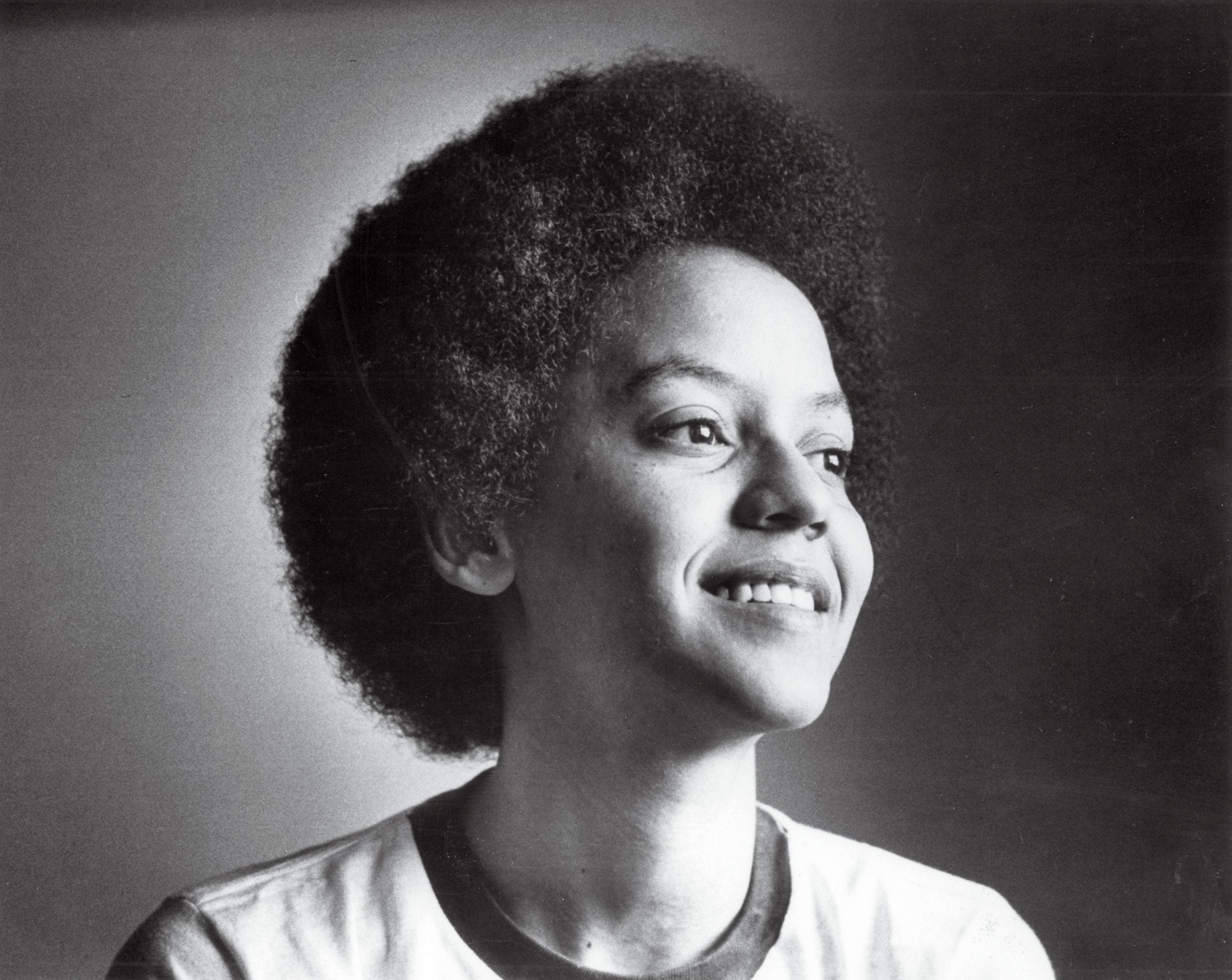Speak On It: Rachel Cargle Chats With Nikki Giovanni And Rapsody
When the tragic murders of Ahmaud Arbery, Breonna Taylor and George Floyd activated international support for the Black Lives Matter movement, we called upon the wisdom of Nikki Giovanni and the millennial perspective of Grammy-nominated artist Rapsody. With the guidance of author and activist Rachel Cargle, their hour-long conversation—dubbed a therapy session by Cargle—touched on their thoughts about the protests in America, what freedom looks like today and the power of Black women’s voices—including their own. Read on.
RACHEL CARGLE: I’m so excited to be talking to Dr. Nikki Giovanni and to Rapsody, both women I have learned deep lessons from.
NIKKI GIOVANNI: Please, call me Nikki.
CARGLE: All right. [Laughs] I’m so inspired by your work as writers, as a poet, as a rapper. Nikki, in the 1971 interview between you and James Baldwin, you expressed the same sentiment as me, which pleases me so much, because I say my work is to keep White people uncomfortable. My work in this world is to maintain this pressure to ensure that they are the ones who are uncomfortable, instead of us in our Black bodies walking around. But it’s the music of Rapsody that gives us a salve.
It’s the listening to your work, Nikki. I loved when I found out that your poems were on Spotify. With all of us being creatives, I’d love to hear from both of you, with your art, with your words: What role do you feel that we creatives play in a movement like this? Whether it’s from Nikki—your generation—or Rap, we consider the children we may have and what roles they’ll be playing on their rung of Jacob’s Ladder. What do you feel about our work as writers, as people who are putting thoughts to paper and then having it consumed by the world? What is our role?
GIOVANNI: You have to remember particularly that writers usually don’t know that they’ve done good work. I think that James Baldwin, even Jimmy, would not know the impact. He wrote what he saw was the truth. And he hoped that it worked, but he didn’t think, Oh, I need to be read 200 years from now. It was probably more like, I don’t have to be Plato. I don’t have to be Socrates. I don’t have to be anything, I just have to write the truth as I see it. I think the same way.
I would hope that there’s a poem of mine that some child will read 200 years from now and say, “Oh, look at what she wrote 200 years ago.” But you can’t think like that, you just have to write for now. You have to create in the now. And you have to allow yourself to be yourself. This is a profession, as you know. All of us know this is a profession that you have no control over.
So if you try to please your current audience, it’s going to make you crazy. What you’re going to do is write and remember that you are your first audience. You’re the first person who reads you, you’re the first person who hears you. You want to please yourself. You want to say, “Well, I’ve done my best.” I think that’s all any of us can do.
CARGLE: I love that. Thank you. Rap, what space do you feel like you as a creative hold in a time like this?
RAPSODY: Nikki hit it right on the head. But just to piggyback, I was going to say that’s it—to speak your truth, to reflect the time, whatever that time is. Maybe whatever you’re dealing with personally, whatever you look out into the world and see that affects you, it inspires you to pick up the pen and write. You just have to be open to whatever flows, let it flow out, and hope that it speaks to somebody. When I think about my art, I’ll make an album and I’ll be like, “I don’t know if it’s good, but it’s honest.” And everybody will be like, “Are you crazy?
You don’t even see how much it’s going to impact people.” And it’s like I never do. It’s just like, “This is where I am. These are the stories that I wanted to tell. This is how I was feeling. This is what I wanted to talk about. This is what I wanted to record for people.” And I think that’s the best that you can do. And when you have so many artists who see the world in so many different ways, and have so many different creative ways of telling that story, you get a beautiful, full picture.
There’s a different multitude of colors, and everybody has a piece of the story to tell. So it’s just like, what is your piece? How do you want to say it? How is the world from your perspective? What are you going through in your life that somebody else, maybe on the other side of the world, can relate to? They may not even speak the language but can feel you. I think that’s what it’s all about, just being yourself and letting that light come out.
CARGLE: I love that what we write is our truth, and it’s all we can write, and it spills out of us. And then it’s like, Okay, am I going to share this, or is this something I’m going to keep to myself? But then it comes out, and we’re like, This has to be heard. This has to be, like you said, Rap, a shared experience. I often say that sharing our stories is like a collective therapy session for Black women in particular, because it’s powerful for anyone to say, “I’m not the only person who has experienced this.”
I deeply value both of you giving us this therapy of being seen, of being heard, of being understood—by women who offered their art, their creativity, to relate. And the love letters, and the hope, and all the ways in which you just exist and say your truth, and it just pours into so many in so many ways.
Nikki, I have to tell you. I signed for my first book deal, and I have so much written about you in my book; so much written about the ways that your work has given me a place to rest in and feel safe in doing this work—because I know you have done it, and you’ve done it well, and you have given me so many tools to continue. What we do, this is “activist work”—I am not the first, I will not be the last, it’s just my turn. I appreciate you for stepping into your turn and giving me the space, Rap. You’ve both given us so many spaces to have our turns in showing up and doing meaningful work.
Rachel Cargle (@rachel.cargle) is an author and activist. She’s the founder of The Loveland Foundation, a nonprofit offering free therapy to Black women and girls.
Kevin L. Clark (@kevitoclark) is a writer, producer and screenwriter. He curates essence.com’s biweekly music column, The Playlist.
Source: Read Full Article

